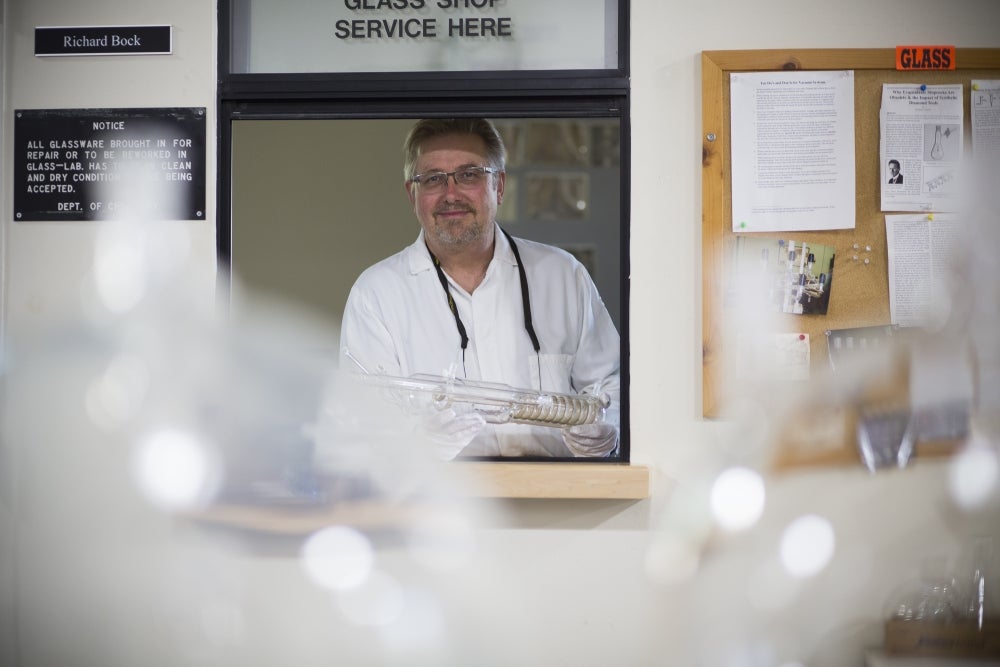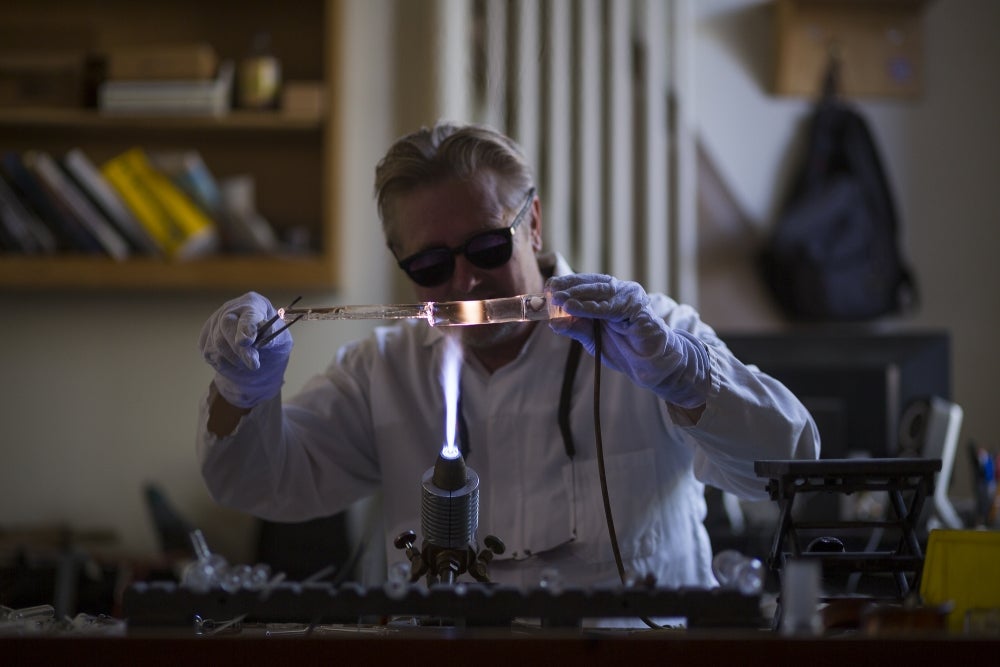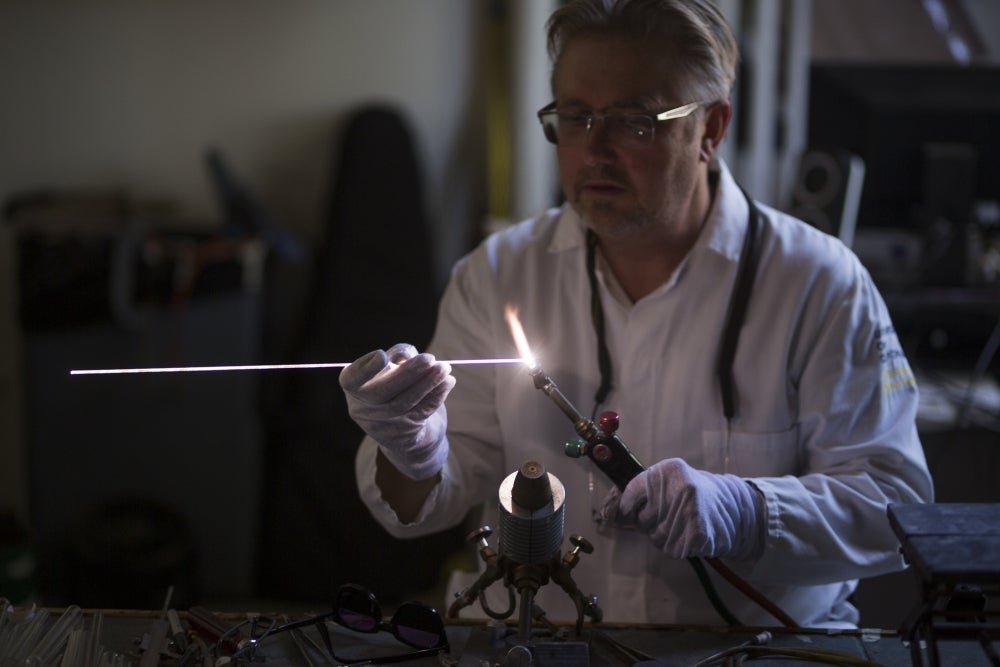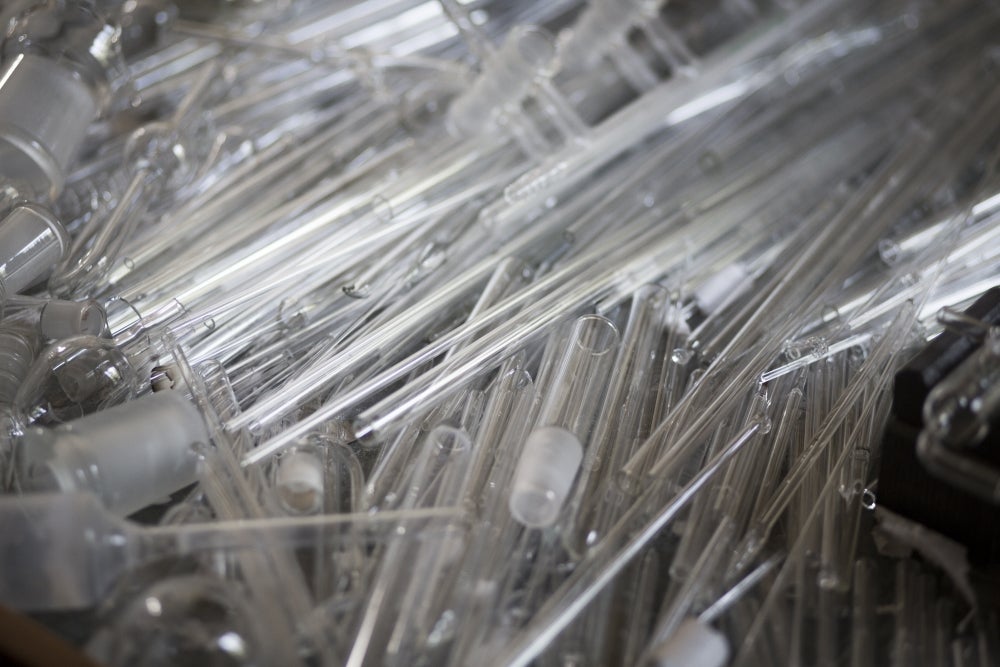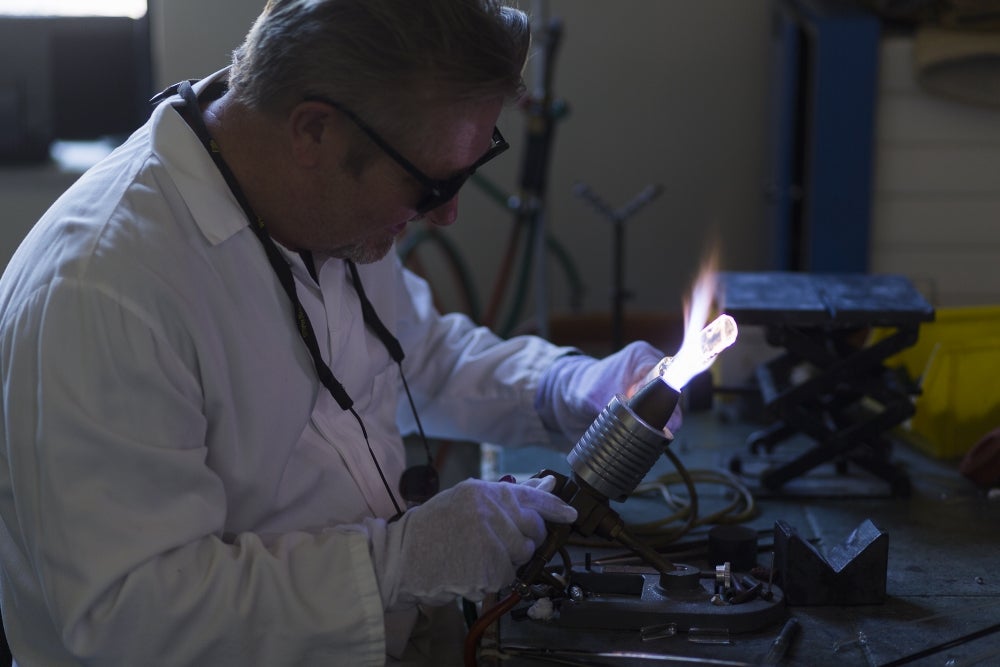Master of Glass
Richard Bock has a charmingly cluttered work space, and he makes no apologies for it. “A tidy glass shop,” he argues, “is a slow glass shop.”
A third-generation glass blower and master craftsperson, Bock is the glass shop manager for UC Santa Barbara’s Department of Chemistry and Biochemistry. He spends most of his days taking simple Pyrex and quartz tubing and turning it into intricate custom instruments for all sorts of different applications, using nothing but his hands and a very hot flame. And in order to quickly produce scientific devices of all shapes and sizes, things have to get a little messy.
“I make important, useful things out of glass,” explained Bock, whose projects range from simple tools to complex technology he can’t even discuss (ironclad nondisclosure agreements prohibit it).
As functional as his work product is, it also holds an element of artistry. Bock, who was raised in Germany and trained there, learned his craft the old-fashioned way, working first as an apprentice and then under a master glassblower. He admits that he never considered any other profession. “I don’t know that I even had a choice,” he said, laughing. “My dad had a business and I was already helping out when I was 15 or 16.”
Bock credits much of his aptitude to working in glass production for years before taking on projects by himself. In that role, he said, consistency is key: “You’re pumping out 250 of the same thing with two minutes for each, and you better not look up until those 250 are done.” This mastery of repetition, while monotonous, is what Bock believes taught him many of the skills he still uses today.
Bock’s glassblowing process begins with a consultation. Someone — a professor in the Department of Chemistry, a research group, or even a local business — will inquire about having a specific instrument made out of glass. Because no one on the Central Coast has achieved his level of expertise, he gets requests from across the region.
Next, Bock meets with the interested party to talk details: what the instrument will be used for, what sort of temperatures it will need to withstand (which determines the best material to make it out of), and other parameters. Sometimes he scribbles a rough sketch on the spot with approximate measurements, and sometimes he receives a detailed computer-generated drawing with specifications down to the millimeter.
Actually making the instrument can take anywhere from a few hours to a few days, during which Bock has to work steadily and confidently. “The thing with glass is, it expands under heat and contracts when it cools down,” he explained. “Sometimes you can’t stop because it will crack if you let it cool down.”
While he works, he constantly adjusts the temperature and size of the flame in front of him, mixing natural gas, oxygen and hydrogen and manipulating a glowing piece of glass in subtle ways. He knows instinctively which level of heat he’s working with from the color of the flame. Bock wears a lab coat and simple white cotton gloves when he works. “These are just to keep the sweat off the glass,” he explained. “I’ve been doing this so long that I’m used to the heat.”
With niche expertise comes high demand, and Bock admits that one stressor in his line of work is the sheer number of requests that come into the shop. He often juggles multiple projects at once. “Keeping up with the workload is a challenge, but that is my own fault because I keep saying yes,” he said. “I feel like if someone comes to me and they need it and I can do it, I’ll do it for them. I don’t like turning people down.”
Why so agreeable? For Bock it comes down to the satisfaction of knowing his work plays a role in scientific progress. “It is not to be underestimated how much high-tech research comes out of this school, and I like that I’m needed by faculty and grad students,” he said. “I like that the jobs I do are so different and constantly changing. I rarely do the same thing twice.”
Bock recognizes that technology is rendering craftsmanship obsolete in many fields, and that his profession is not immune. Even now, he said, he notices that some clients are hesitant to request a glass instrument when it could be made more quickly (and often at less cost) out of another material. Still, he marvels at the human element in his work. “How much stuff that you get is made by hand anymore?” he pointed out.
As one of a few remaining scientific glassblowers in the U.S., Bock said he feels duty-bound to share his knowledge and keep the craft and tradition of glassblowing alive. He has mentored a few apprentices in his shop, and hopes to take on more in the coming years. “I can’t guarantee what will happen after me,” he said, “but one thing I can say: as long as I live, we won’t see 3D printers do what I do.”
